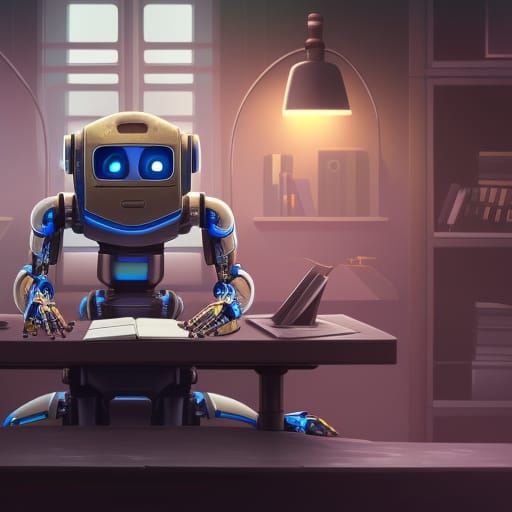Writing Fiction with a Chatbot. Or Not.
Part 1 - An Exploration
To AI or Not AI?
Like other fiction authors, I’ve struggled with the idea of using AI to help me write.
First, there are the moral questions: If the AI tools learn by scanning texts and images posted all over the Internet, and if I use those tools, isn’t that stealing? This has definitely been a huge concern, but that concern might be dying down. A quick Google search on the question “Are AI's stealing from fiction writers?” found that:
1. Most of the articles and posts on the topic come from 2023
2. There are more recent sources indicating that restrictions put in place have rapidly shrunk the data available for AI to read.
So the controversy may be settling down.
But then again, maybe not. An article posted in Book and Film Globe in October 2024 is titled “How AI Took Away My Writing Career. And how I’m fighting to get it back.” The article cites a class action suit filed by 17 fiction authors and the Author’s Guild against OpenAI and Microsoft, claiming copyright infringement. While that lawsuit was filed in 2023, suits against other AI companies followed this year. From all I can tell, none of these cases have been settled.

On the other hand, many people have argued all along that the belief that AIs “steal” author’s work is a misconception. To quote fiction writer and technologist KimBoo York1: “People tend to think that LLMs are massive databases which have copied content and pull from that content to create something new. That is not how they work. They are more like math machines which roll statistical outcomes. They don't "download" a book, for instance, they "read" it.”
York further states: “I do believe that people should have the right to decide if their work is used for AI training, but don't confuse the problem with the technology.” She cites this as part of the larger, tangled question of privacy rights in our digital world, and suggests that the solution is “to enact legislation that protects citizens from their data being used/shared/collected without their permission, no matter the tech in question.”
I pretty much agree with York. Having delved into the moral morass as much as I cared to, my own conclusions are:
If you’ve posted something on the Web, it’s because you want it to be seen, read, learned from. Is an AI learning from it really that different from a human doing so?
Authors and artists should certainly have the right (and an easy method) to deny AI bots permission to eat their work.
If you think I’m way wrong about this, gentle reader, I would love to hear your views. Feel free to comment below.
AIn’t Going Away
Whatever we may think of it, sitting here at the end of 2024, it is apparent that fiction produced with the help of AI is ….
“Not going away any time soon,” to quote Laurence O’Bryan, novelist and proprietor of Publishing Reinvented here on Substack. His views on the current benefits and uses of AI tools for authors can be found here.
So … I’m Looking Into It
As for my own fiction work, I admit it: When it comes to the use of AI tools I have been a slow adopter.
But never too late to learn!
So I started researching. And I soon discovered an amazing number of tools and resources for writers who want to us AI.
A great place to start is this list compiled by author Steph Pajonas .
If you are so inclined, there is also a Facebook group with over 6,000 members, where relevant issues are discussed.
My Experiment
Following up on preliminary research, I decided on an experiment. For my first foray into this strange author wonderland, I would take a story idea that I’ve had in my notes for a long time, and see what AI could make of it.
You can read the results in Part 2, coming soon.
York writes KimBoo’s Scriptorium / House of York here on Substack. She was kind enough to share some thoughts with me for this post.



I agree a lot with your take on it after my watching of this as a creative and a tech nerd. I've seen a lot of amazing tech rolled out in my life, with me being in the thick of it for a couple of decades. Some of it was amazing and other times it led to more scariness of how easily we could gain information and have hacks into our personal info. They still haven't gotten past a lot of the same tricks despite the tech upgrades. I doubt AI will help them because in the end, truth is the truth.
I rather like how AI can analyze and compile things faster. It's far from perfect though. You still have to make it tell you its sources and verify them as if it were a student handing in a paper.
As for it stealing all the art in the world - just with books, we throw 3 million of them out there a year in the US alone. I can smell the smoke from here of even the biggest data array trying to consume all of this. :) There's no money in it unless they copy famous authors and those are easier to track because they are well known.
I for one will use AI for tedious things, but I prefer the fun of collaborating creatively with other truly sentient beings with huge opinions and emotions.
I appreciate your balanced take on the issue of AI and writing, Jack. It's definitely a thorny one, and while I have my opinions, I respect people learning about the issue and forming their own. I look forward to part 2!!!!